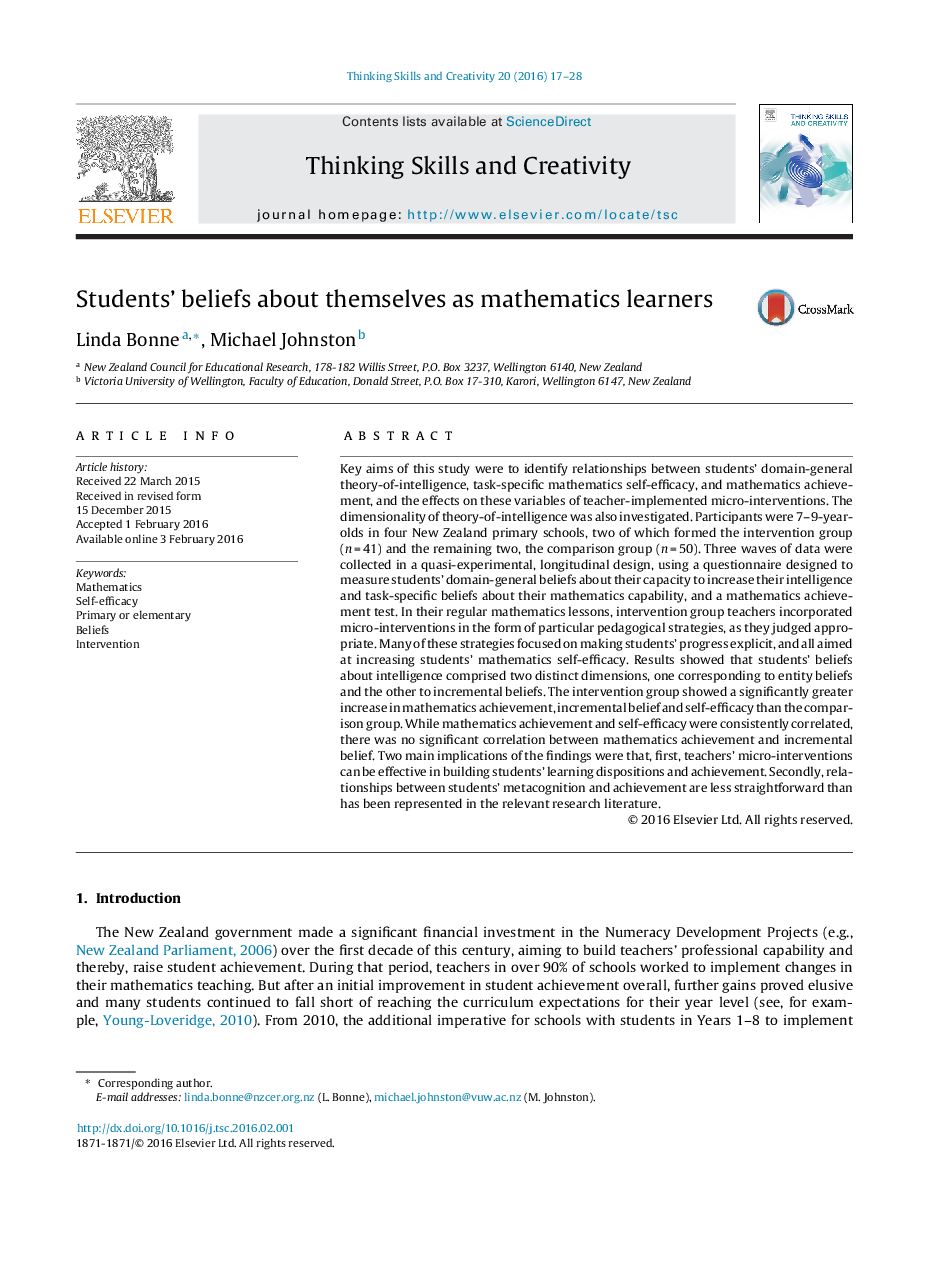| Article ID | Journal | Published Year | Pages | File Type |
|---|---|---|---|---|
| 375523 | Thinking Skills and Creativity | 2016 | 12 Pages |
•Students beliefs about intelligence comprised two dimensions: entity & incremental.•Increased math achievement, self-efficacy, incremental belief in intervention group.•Math self-efficacy and achievement were consistently correlated.•No significant correlation found between math achievement and incremental belief.•Teachers micro-interventions can strengthen students beliefs about learning
Key aims of this study were to identify relationships between students’ domain-general theory-of-intelligence, task-specific mathematics self-efficacy, and mathematics achievement, and the effects on these variables of teacher-implemented micro-interventions. The dimensionality of theory-of-intelligence was also investigated. Participants were 7–9-year-olds in four New Zealand primary schools, two of which formed the intervention group (n = 41) and the remaining two, the comparison group (n = 50). Three waves of data were collected in a quasi-experimental, longitudinal design, using a questionnaire designed to measure students’ domain-general beliefs about their capacity to increase their intelligence and task-specific beliefs about their mathematics capability, and a mathematics achievement test. In their regular mathematics lessons, intervention group teachers incorporated micro-interventions in the form of particular pedagogical strategies, as they judged appropriate. Many of these strategies focused on making students’ progress explicit, and all aimed at increasing students’ mathematics self-efficacy. Results showed that students’ beliefs about intelligence comprised two distinct dimensions, one corresponding to entity beliefs and the other to incremental beliefs. The intervention group showed a significantly greater increase in mathematics achievement, incremental belief and self-efficacy than the comparison group. While mathematics achievement and self-efficacy were consistently correlated, there was no significant correlation between mathematics achievement and incremental belief. Two main implications of the findings were that, first, teachers’ micro-interventions can be effective in building students’ learning dispositions and achievement. Secondly, relationships between students’ metacognition and achievement are less straightforward than has been represented in the relevant research literature.
